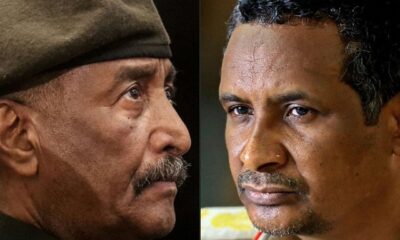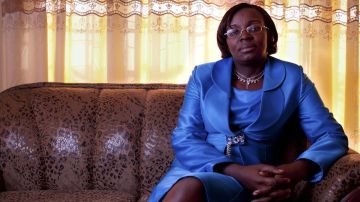
OPINION: Does the opposition in Uganda ever learn from history? 2026 Coming Too Early For Warring Opposition Parties.
Does the opposition in Uganda ever learn from history? Counting from 1996, through 2001, 2006, 2011, 2016, 2021 and now on to 2026. The supposedly long-awaited transition from President Yoweri Museveni has eluded its promoters and will continue to do so into the future going by what’s unraveling right before our eyes.
It’s a fact that 38 years for President Museveni in power is thanks to his ingenuity, tact, will power, performance, organisational capacity and divine anointing. On the other side of the political coin is the “shortness” of his opponents in the same categories. The opposition has told too many lies about their capacity and President Museveni’s standing with Ugandans. Time is catching up with them!
Current happenings inside the main opposition parties, namely; FDC and NUP are giving us an early glimpse into what to expect in the near future. If it’s not splitting into splinter groups, it will be implosion or both, and there is no way that assures the concerned parties of success in any endeavor. Even without looking at elections, operating a healthy, functional and cohesive political organisation is an achievement, which comes with benefits in terms of competitiveness in the field of play.
Presently, FDC is a shadow of its former self. First, Maj. Gen. Mugisha Muntu who had been its chief organizer and president at some point, defected to start his own party, ANT. He took with him some of FDC’s big wigs and members. As he departed, he prophesied that time would, contrary to accusations leveled against him, expose the real moles in his mother party.
Then last year, time matured! After a hiatus in which he feigned lack of interest in public activity, including boycotting contesting in the 2021 elections, Besigye emerged at the head of a faction based at Katonga road (in Kampala) crying foul that the party he once headed and on whose ticket he contested for President four times, had been infiltrated and that the incumbent party President and 2021 presidential flagbearer, Patrick Amuriat Oboi and Secretary General, Nandala Mafabi, knew something about the development.
He exposed the behind-the-scenes of the party’s 2021 elections status which by no chance could have allowed the party to fare any better. The formerly most powerful opposition party was upstaged by the new NUP which currently has majority members in the House. Amuriat himself came third while President Museveni won comfortably.
Besigye didn’t campaign for Amuriat, and when last year he came out on why he didn’t feature on the campaign trail, the excuse was that “dirty money” had come into the party and he didn’t want to associate with it.
Nevertheless, with or without whichever money, FDC slipped in its rankings and as we talk, it will only be a miracle if it doesn’t split into two-Besigye is consulting on how to form a new party. But the bad blood is literally boiling between his supporters and those of the Najjanankumbi faction. The other day they fought during the burial of activist Sarah Eperu in Ngora.
Daily, they are exchanging bitter words and accusations, all the while exposing their dirty linen which can only leave party members embarrassed and regretting their choice of belonging. Going into 2026, it means that what was left of FDC supporters in 2021 after the emergence of NUP and ANT will again be shared between Besigye and whoever remains of the official party will front.
On the other hand, NUP which displaced FDC is equally in turmoil, with the membership split between party president, Kyagulanyi Sentamu (Bobi Wine) and former LOP, Matthias Mpuuga. The latter is “accused” of benefiting from a service award and he has stood his ground and defended himself. A defector from DP, Mpuuga was already targeted by the radical wingers in NUP apparently for being moderate in his approach.
Without elders at hand to mediate some of these differences, NUP will struggle to survive an internal split. At a time when building structures and setting a clear policy agenda would help set its roots, the quarrels and fights will certainly do the opposite.
Why is money such a disorganising factor in these parties? It has to do with absence of a strong programme and ideology to unite members and to sell to Ugandans. Absence of ideas creates room for shallowness, gossip, intrigue, suspicion and faultfinding which recipe is disastrous for any organised group. If the trend continues, we know who will not make much of 2026.
President Museveni prophesied and warned us about the functionality of political parties in societies still on the mend. It’s a dangerous game which creates fertile ground for dividing our people. If members of the same parties are hard on each other as we see in NUP and FDC, how hard are they on those belonging to other parties? Why can’t we learn from the post-independence era and the errors of political groups which worked for narrow interests as opposed to national causes?
At various intervals, there have been attempts to build coalitions and unifying pressure groups. On each occasion, I have predicted that such coalitions cannot hold since there is nothing in common between the allying partners except fighting to remove President Museveni from power.
Every single time they try and fail the public loses trust in them and retreats to the President’s side. As we talk, the fights in opposition parties are benefitting NRM. I have personally received lines of defectors approaching me to take them to the President, some with sensitive and intriguing secrets indicating why they are running away from sinking ships.
2026 is coming too early for warring opposition parties. Time will reveal it!
News
Ugandan Citizen Abducted, Held in Secret Detention for Three Months, Sparks Outrage and Calls for Justice

A disturbing new case of unlawful detention has surfaced, highlighting the ongoing human rights crisis in Uganda. A Ugandan citizen was reportedly abducted and held in a secret facility, known as a “safe house,” for three months, only to be released without charge or explanation. This incident, reported by NTV Uganda, has sparked widespread condemnation and renewed calls for accountability regarding human rights abuses in the country.
While the details surrounding the abduction remain unclear, reports indicate that the individual was taken without due process and held incommunicado—an action that has long been condemned by human rights organizations. The victim’s release, with no charges filed and no clear justification, has angered activists and citizens, who view this as yet another case of egregious abuse of power by the state.
“This is a recurring pattern,” said one human rights activist. “Abductions, secret detentions, and unexplained releases have become all too common in Uganda. These acts violate fundamental human rights and erode public trust in the justice system.”
The use of “safe houses,” unregistered detention facilities reportedly operated by security forces, has been a focal point in numerous allegations of torture and illegal imprisonment. Despite repeated calls from both local and international organizations for their closure and accountability for those involved, little action has been taken to address these violations.
This case underscores the urgent need for reform within Uganda’s security apparatus and greater accountability for human rights abuses. Observers hope that drawing attention to these injustices will spur concrete action to bring those responsible to justice and ensure the protection of basic human rights.
As frustration mounts, calls for both domestic and international pressure to hold the government accountable for such crimes grow louder. “One day, there must be accountability for all these crimes against our people,” stated one social media user, reflecting the sentiments of many Ugandans.
News
NUP Gathering Disrupted: Kyagulanyi Alleges Security Force Harassment and Arrests

National Unity Platform (NUP) President Robert Kyagulanyi has accused Ugandan security forces of using excessive force to disrupt a planned NUP gathering. The allegations were detailed in a statement shared on Twitter, following an event held to honor children of NUP supporters who were killed, disappeared, or detained for their political beliefs.
According to Kyagulanyi, security personnel, under the command of an officer identified as Asiimwe, carried out a preemptive operation early in the morning upon learning of the NUP’s plans. The forces allegedly stormed the premises, arrested workers, and deployed tear gas to disperse those present.
“The criminals under the command of one Asiimwe deployed early morning, arrested our workers, and threw tear gas into our premises. They’ve cordoned off the premises and blocked all people from accessing the place,” Kyagulanyi wrote.
Among those reportedly arrested were Saava Peter, Mudenya Samson, and Turyasingura Samson. Kyagulanyi claimed the detained workers were subjected to beatings and interrogated about their political affiliations, with security operatives labeling them as terrorists.
“These JATT operatives asked the workers who they support politically, branding them terrorists and criminals—their only crime being that they work with us. You can imagine the indignity!” Kyagulanyi lamented.
This incident adds to the growing tension in Uganda’s political climate, where opposition parties frequently accuse the government of stifling dissent. Despite the challenges, Kyagulanyi ended his statement with a message of defiance and optimism, proclaiming, “UGANDA WILL BE FREE.”
NUP Gathering Disrupted: Kyagulanyi Alleges Security Force Harassment and Arrests
News
Sudan Demands Apology from Uganda Over Army Chief Muhoozi Kainerugaba’s Threat to Invade Khartoum

Sudan has demanded an official apology from Uganda over “offensive and dangerous” comments made by the chief of Uganda army staff, who threated to invade Khartoum, the Sudan Tribune has reported.
General Muhoozi Kainerugaba, son of Ugandan President Yoweri Museveni and CDF of the Ugandan army, posted two comments on the X platform on Tuesday in which he threatened “to capture Khartoum” with the support of the US President elect Donald Trump after he takes office. The posts were deleted later.
“The government of Sudan demands and official apology from the Ugandan government for the offensive and dangerous comments of the army commander,” Sudan’s foreign ministry said in a statement that the Sudan Tribune said it has seen.
Sudan Demands Apology from Uganda Over Army Chief Muhoozi Kainerugaba’s Threat to Invade Khartoum









